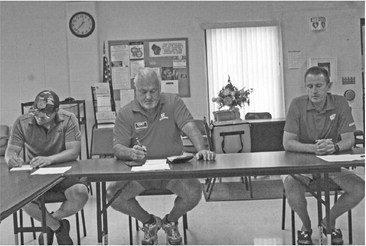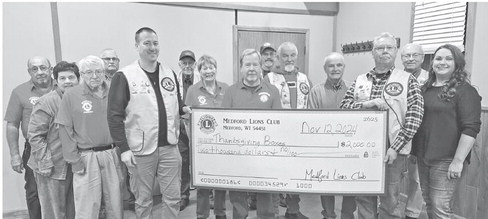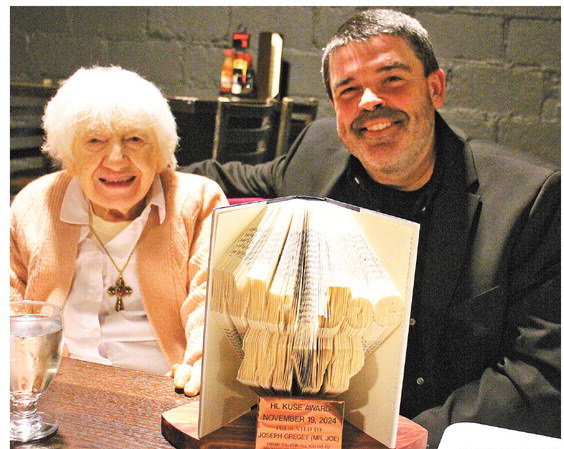needs to put more money ….


needs to put more money into the system. “His answer to every question is more money,” Jacobsen said, criticizing Gov. Evers’ policies.
As far as for municipalities, he supported giving additional state aid to local governments rather than increase limits.
Kaiser agreed and said he would look at ways to adjust the equalization formula. “We can’t be taxed more than we are,” Kaiser said, noting that where he grew up in the town of Richland has not grown and cannot support more taxes.
Tomczyk took a different approach suggesting that the levy limits should be changed. “I trust local government more than I trust Madison,” he said. The flip side of this is that local government officials would not be able to blame things on Madison and have to face the consequences of their actions.
Wisconsin’s rural areas are rapidly aging and employers are struggling to fill positions. Many rural areas have seen a population decline in recent decades. What can the state do to encourage young families to choose to live and work in rural areas such asTaylor County?
Kaiser described this region as truly being “God’s country,” and that with the natural resources in the area it is an attraction. He said one of the attractions is that the cost of living is comparatively lower here than elsewhere but in order to capitalize on the positives there has to be amenities such as rural broadband. He noted that his fiancé works half time from home and that getting rural broadband would open up opportunities for people in the region.
Tomczyk said he was impressed with how far along Taylor County was with their broadband project giving a shout out to Bub’s work. He spoke from the perspective of someone who moved away to Milwaukee but later came back and the reasons for choosing to live in northern Wisconsin versus southern Wisconsin.
Jacobsen also talked about having lived elsewhere. In his case he lived in Pittsburgh, Penn. before packing up and moving back to Wisconsin. One specific area he addressed was the need to reform the Tax Incremental Financing District rules to allow for residential development in TIDs to go along with industrial expansions.
Would you support a reform in the appointment process for state boards to address the nomination review delays and to clarify that positions with set terms of office become vacant upon the end of that term?
Tomczyk noted this was in response to what is going on with the DNR board and with the UW Board of Regents. He said there were hidden angles in every law that were not thought of when the laws were put into place. That said, he supported having the individual on the DNR board saying he is standing in the way of changes.
Both Jacobsen and Kaiser echoed agreement with what the current appointees are doing while serving and did not see a pressing need to change the system. Jacobsen noted it is better to take more time and having someone serving as an acting secretary in the administration rather than appointing someone and then having to go through the process of removing them from office later.
According to the Kaiser Family Foundation, miscarriages occur in 10 to 15 % of all known pregnancies within the first 20 weeks and ectopic pregnancies occur in about one out of every 100 pregnancies. Would you support legislation to guarantee that women will have access to medical attention for miscarriages and ectopic pregnancy without them or their medical providers facing prosecution?
Jacobsen said there needs to be clarifi cation that treatment for anticipated miscarriage is not abortion. “We should not be denying access to address a miscarriage,” he said. He said they need to look at the 1849 statute and make it clearer.
He said he is pro-life and does not favor exceptions, however he said he did not feel it is abortion in these cases. “We are living in 2022 not 1849,” he said.
“A miscarriage is a miscarriage,” Tomczyk said, noting that his wife has suffered a miscarriage “It has nothing to do with abortion,” he said, of the needed medical treatment. He suggested if the current law would interfere with getting medical care then it is a “stupid law” and they need to get rid of it.
Kaiser echoed those comments supporting getting women in those situations the medical help they need.
There have been calls to make first offense operating while intoxicated a criminal rather than a civil offense. Would you support this change? Why or why not?
“It was a mistake and something I deeply regret,” said Kaiser, who has a first offense OWI on his record. He went on to say that people should learn from their mistakes and did not support making it a criminal offense. However, he said making the mistake two, three or four times and it shows someone who has a true problem.
He said while he would not support making first offense a criminal offense, he felt there needs to be counseling to prevent repeat offenses. He also noted the state needed to expand and fund the SafeRide program especially in rural areas where there is no option for people to get home.
Tomczyk said he would not change the law for first offense OWI, noting that but for the grace of God he probably would have had one in the past. He took a firmer stand against those with multiple offenses saying that people with six offenses should not be walking on the street.
Jacobsen also said that he felt the current law was sufficient. He also clarified that it is a forfeiture only if there are no injuries or minors in the vehicle, in those cases it becomes criminal at first offense. He spoke in support of ramping up penalties after the first offense. He also broached the topic of marijuana use coming down opposed to efforts to decriminalize noting concerns over people operating while high.
The primary election is on Tuesday, August 9. Under Wisconsin’s open primary system, people do not have to declare a party affiliation however voters are reminded that in the partisan primary they may only vote for candidates in one party or another.


